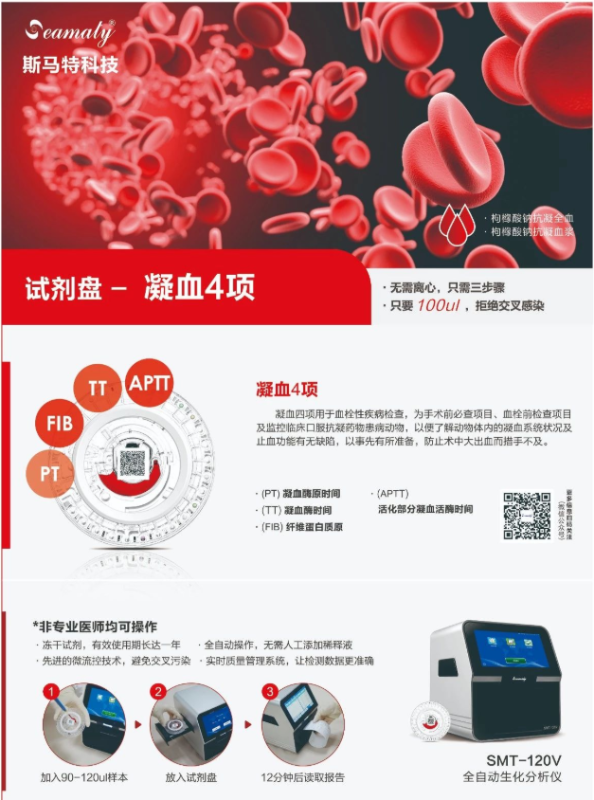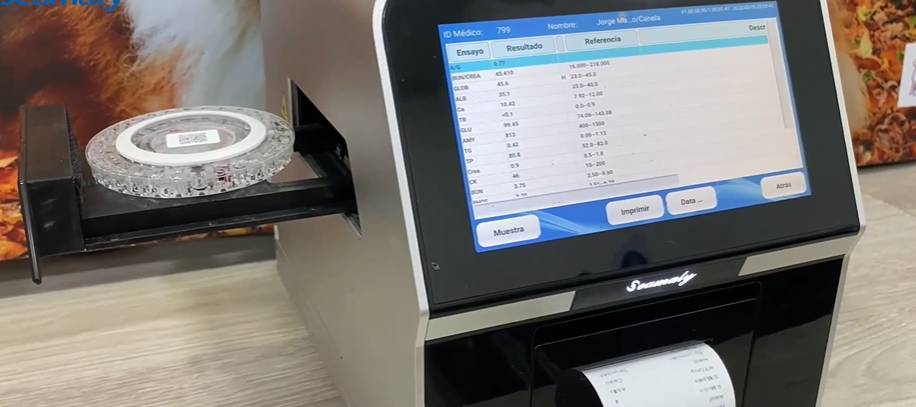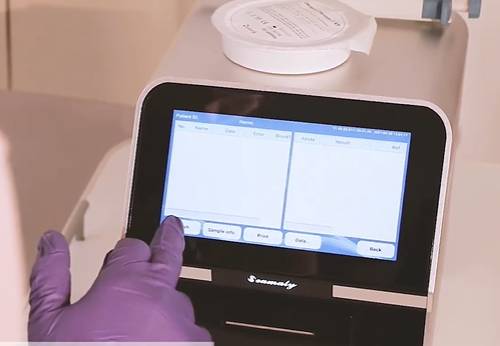release time:2021-04-22 09:30:03
The blood coagulation reagent with four
indexes launched by Chengdu Seamaty Technology Co., Ltd. used with SMT-120V, an
automatic biochemical analyzer, is suitable for preoperative examination of
pets, which can help doctors to understand whether the animal's hemostatic
function is defective. The preoperative examination can prevent intraoperative
bleeding.

Operation precautions:
1. Before blood collection, the reagent
disc needs to be taken out of the refrigerated environment, placed in a room
temperature environment between 10-40 degrees Celsius for 20 minutes, and then
tested.
Warning: Do not use electrical appliances to increase the temperature of the reagent tray, such as using a hair dryer.
2. Centrifuge the empty sodium citrate anticoagulant tube
3. A purple scalp needle or a small needle syringe (1ml syringe) is required for blood collection
4. The blood collection process should be gentle and slow to avoid excessive force.
5. The time of blood collection should be controlled within one minute.
6. Remove the needle after blood collection, and add 0.5ml sample volume to the sodium citrate anticoagulation tube. Please pay attention to the scale on the anticoagulation tube.
7. Turn the anticoagulant tube upside down 8-10 times to mix, avoid violent shaking.
8. The test should be carried out immediately after sampling.
9. If it is not possible to test immediately, please store the sample in an environment of 2-8 degrees Celsius and test within two hours.
10. The sample types support whole blood or plasma
11. Before the test, if the sample has hemolysis or coagulation, the sample needs to be re-collected.
12. When adding samples to the reagent
disc, the operation should be gentle to avoid bubbles.

2021-06-08
Animal biochemical diagnosis refers to the detection of animal enzymes, lipids, liver function, blood sugar, inorganic elements, protein and non-protein nitrogen through chemical reactions involving enzyme reactions. There are even some brands that have their own unique special test items. Each has its own advantages. When purchasing animal biochemical analyzers, you can combine them. Consider your own demands and actual needs.

2021-04-21
Pet biochemical test is an indispensable tool for veterinarians to diagnose diseases, but there are many factors that affect the accuracy of the results. This article summarizes some influencing factors.

2021-04-20
Generally, blood samples for veterinary biochemical testing can be divided into three types: whole blood, serum and plasma.Anticoagulated whole blood is the most common type of sample in veterinary biochemical testing. For anticoagulation tubes, different colors of anticoagulation tubes represent different anticoagulants and uses.